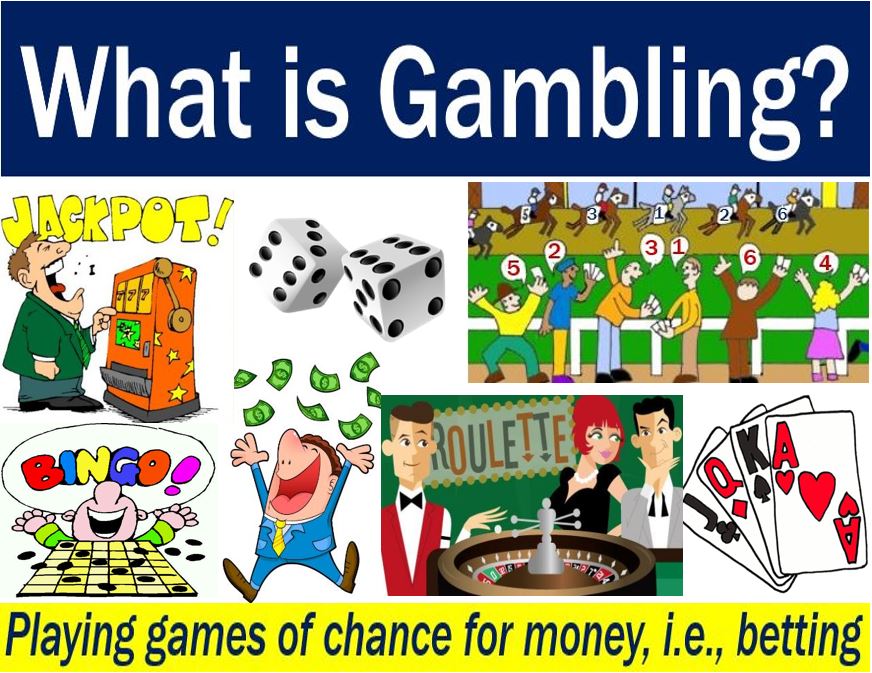Gambling – definition and meaning
Gambling is the practice or act of playing games of chance for a stake. In most cases, the stake is money. However, if the gambler has run out of money, the stake could include any possession. It is the noun of the verb to gamble. The term means the same as betting or wagering. We call somebody who bets a gambler. Gamblers bet on something that results either in a gain for them, or a loss.
The term includes all kinds of betting, gaming, and participating in lotteries. In countries that allow betting, only people over the age of eighteen can participate.
BeGambleAware.com has the following definition:
“Gambling is taking part in a game during which you risk money, or something of monetary value, in order to win money or a prize.”
“The outcome of the game is usually down to chance, so when gambling you might leave with less money than you started off with.”
We may also use the term to express concern. For example, if I say “the president is gambling with our future,” it means I am concerned about his/her policy.
In many countries, gambling is still considered to be illegal, whilst in other countries such as the UK, it is legal. In federal states such as the USA, it may also differ between states, for instance, Nevada (the home of Las Vegas) it being legal and Utah illegal.
This article focuses on the meaning of the term when it relates to betting.
Betting and gaming tax receipts
Governments receive a sizable tax revenue from the gambling or gaming sector. According to casinobiggestbonus.com, betting and gaming receipts for the British Government totaled £31.5 billion in the fiscal year 2017/2018.
In the state of Nevada, USA, tax receipts just from sports betting totaled $248.8 million in fiscal year 2017.
Types of gambling
There are many different kinds of gambling, including table games, non-casino games, and electronic gaming.
As online gambling is rising these games are easy to play from most platforms. This allows more people to gamble.
Non-casino games, such as bingo, lotteries, and dead pool, are games that take place outside casinos.
The term also includes many types of dice-based games, such as liar’s dice, backgammon, threes, or hazard.

Gambling sectors
GamblingCommission.gov.uk divides gambling activities into sectors, which include:
- Arcades, which may be for adults or families.
- Gaming machines, such as fixed-odds betting terminals and fruit machines.
- Betting, occurs online, at an event, or at bookmakers.
- Bingo, which may be online or in a bingo hall.
- Lotteries, which include tombolas, sweepstakes, raffles, etc.
- Casinos, there are online as well as physical casinos that people enter.
People can bet on lots of things. We can bet on whether a statement is true or false, or that an event will happen, i.e., a back bet.
There are also lay bets, in which people bet on whether something will not happen before a specified time.
Some people say that trading in a stock market is a form of gambling. Others, however, insist that buying and selling shares is investing, and not betting. The stock market is the whole market where traders buy and sell shares.
Video – Gambling Addiction
This BBC News video explains what goes on inside the brain of addicted gamblers when they make a bet.

